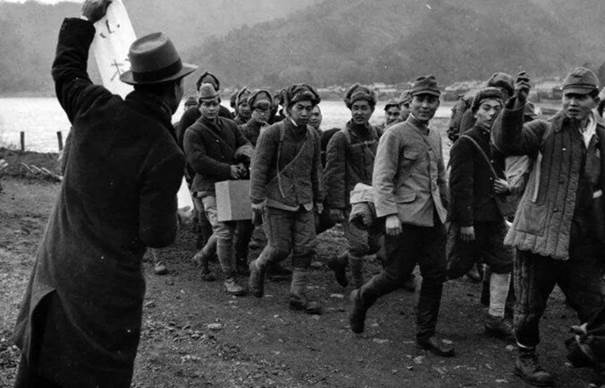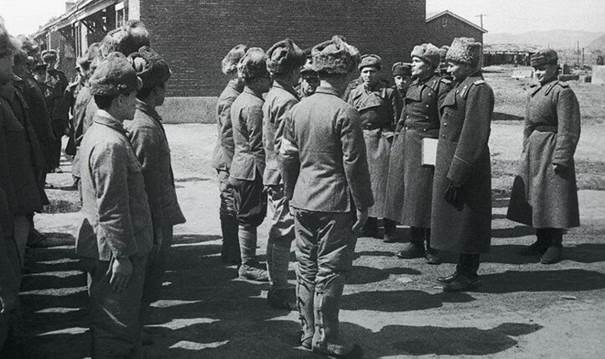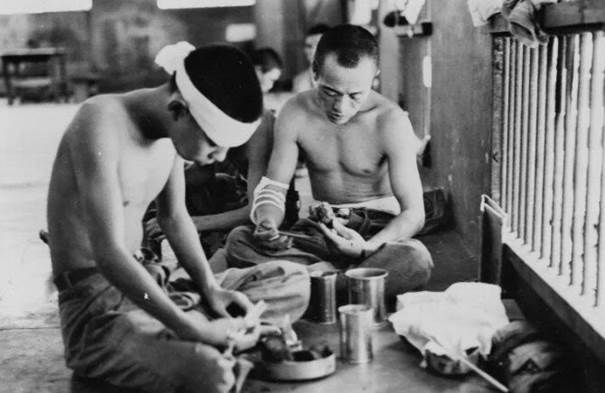What habits of Japanese prisoners surprised Soviet soldiers
After the Second World War, hundreds of thousands of Japanese became prisoners of the USSR. In special camps, they surprised Soviet soldiers with “oddities” in their behavior and attitude to work, theft, and cleanliness.
What exactly shocked the Russians in their actions?

At the end of the Second World War, the military forces of the USSR went to Manchuria to American soldiers. During the 1945 offensive, Soviet troops defeated the Japanese Kwantung Army, which was a prerequisite for the conclusion of a peace treaty.
Despite this, hundreds of thousands of Japanese were taken prisoner by the Red Army and forced to work for the USSR, as their country was an ally of Nazi Germany.
Hundreds of thousands of Japanese in camps
After the end of the Second World War, the USSR had to direct all its efforts to the restoration of the country, in particular the national economy. Labor was needed, so the government initially did not let hundreds of thousands of Japanese go home – they were sent to the most difficult jobs in 30 regions of the country.
Many were sent to special camps in Siberia and the Far East, where winter temperatures reach extremely low levels, for which Japanese people were not prepared. Due to the cold and insufficient food (only 300 grams of bread per day, the same amount of rice and 100 grams of cereals), thousands of Japanese died.
In addition, medicine was at a very low level, which aggravated the situation: there were practically no medicines. Serious diseases such as tuberculosis, pneumonia, and typhoid began to spread. The prisoners were forced to work day and night in agriculture, to extract gold and coal in mines, to work on construction sites and machine-building plants.

The exact number of Japanese prisoners of war is still unknown. According to some sources (according to the Ministry of Internal Affairs of 1956) there were about 640,000 soldiers in total, most of whom later returned to their homeland.
However, the Japanese authorities claim that the number of prisoners was much higher – more than 1 million people. The death toll also ranges from 40,000 to 62,000 prisoners of war.
The “Oddities” of the Japanese
During the stay of the Japanese in special camps, the Russians noticed some “oddities” of the prisoners of war due to the difference in mentality and traditions of the two peoples. Here are some of them.
5. Be organized
Compared to the Hungarians and Germans, the Japanese had a particularly high level of discipline. Even while in captivity, they never refused the work assigned to them and always carried out the orders of their commanders.

4. Cleanliness
Due to the rapid spread of disease, all prisoners of war were forced to go to the bathhouse once a week. Unlike other nations, the Japanese have always tried to maintain cleanliness around them and their own neatness. In their traditions, cleanliness was valued much more than modesty, so the Japanese washed completely naked at every opportunity, even in full view of passers-by.
“They have no sense of shame at all,” said one Soviet soldier
3. Mixing food
The Japanese have never tasted bread, as in their country it was replaced by rice cakes. When the Russians found out about this, they began to be given cereals and rice, but the prisoners always mixed them in the same plate, which surprised the Soviet citizens.
Firstly, this way of eating was the basis of the gastronomic culture of Japan, and, secondly, the prisoners of war did not like what they were given, so in order not to eat two bowls of unpalatable food, they limited themselves to one.

2. Self-Esteem
Due to the fact that there was not enough food in the country, the entire Soviet people suffered from malnutrition, but this was especially difficult for prisoners who were fed with leftovers.
The daily norm was about 300 grams of bread, rice and porridge, but despite this, the Japanese almost never stole from each other and did not ask for food from the locals.
1. Work Culture
Unlike prisoners of war from other countries, the Japanese always took the work they were assigned to take seriously and responsibly. And they performed it at a fairly high level. The roots of this lie in the upbringing in Japanese families, where children are accustomed to work from an early age.

Most of the Japanese who died on the territory of the USSR were buried in cemeteries, which are now in complete desolation. However, the authorities turned their attention to this problem in 1995 and created a Memorial Park in Khabarovsk, thus paying tribute to the Japanese people.
